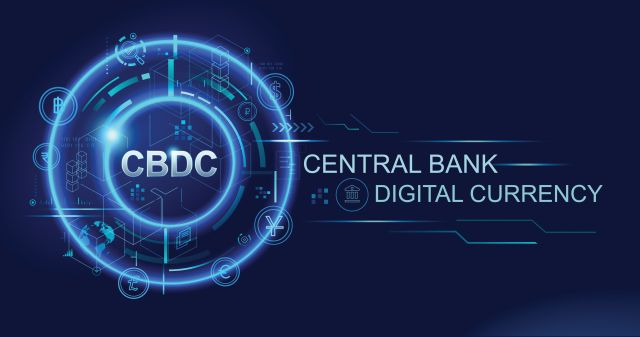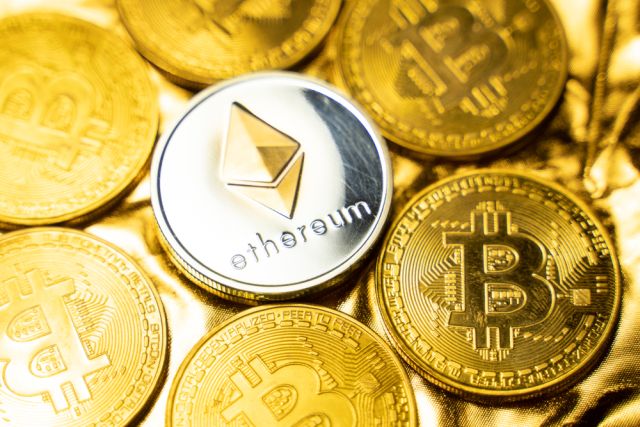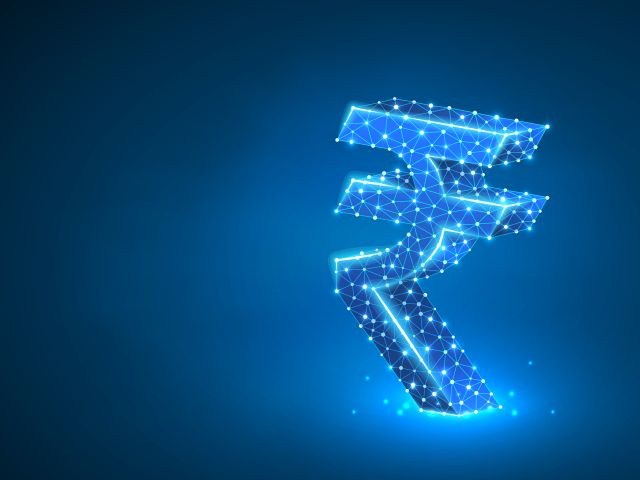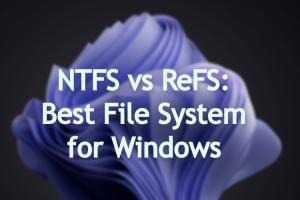In the Union Budget 2022 speech, Nirmala Sitharaman, the Finance Minister of India, announced a digital currency called ‘Digital Rupee’, which will be issued by the RBI (Reserve Bank of India) soon. The announcement came in the backdrop of private cryptocurrencies getting banned in India. While private cryptocurrencies didn’t get a blanket ban, the government stated it would levy a 30% tax on income generated from crypto trading and virtual digital assets like NFTs. It seems like the Indian government wants people to use the homegrown Digital Rupee instead. But ever since the Union Budget announcement, many of you might be wondering – what is also Digital Rupee, and is it a cryptocurrency like Bitcoin and Ethereum? To answer all your questions, we have come up with an explainer on what is Digital Rupee, CBDC, and more. So without wasting any time, let’s jump right in.
Everything You Need to Know About Digital Rupee (2022)
In this explainer, we have discussed what is Digital Rupee, CBDC, how it is different from other cryptocurrencies, and more. You can use the table below to get answers to your queries at your convenience.
What is CBDC (Central Bank Digital Currencies)?
Before we understand Digital Rupee, we must know what CBDC is. CBDC stands for Central Bank Digital Currencies, and the term is being used all over the world. It’s essentially a currency in electronic form, issued by the Central bank of the country. For example – RBI is the Central bank of India, so RBI has the authority to issue a digital currency that is similar to fiat currency (or paper money) already in circulation.

It’s also important that we understand the concept of fiat currency before moving forward. Fiat currency is a sovereign currency, meaning the country’s Central bank issues it, which, as a result, brings inherent trust to the currency. It’s not issued against commodities like gold or silver, but the Central bank declares it as a legal tender by the force of law. To sum up, the digital currency (Digital Rupee, as it may be called) will appear as a liability on RBI’s balance sheet. Hence, it will be a legal tender in India.
So when the Indian government states that the RBI is going to introduce Digital Rupee, it means that Digital Rupee will be a CBDC, the digital version of fiat currency, and it will be exchangeable with cash. Now, if you wonder how it is different from other cryptocurrencies or digital cash that we use through UPI, Net Banking, etc., read on to find out more.
What is Digital Rupee?
Now talking about Digital Rupee, it’s an Indian CBDC that the RBI will launch sometime in 2022-23. It’s basically a digital token of India’s official currency and the RBI will issue and manage this digital currency. In the Union Budget 2022 interview, the Finance Minister stated that Digital Rupee will use Blockchain and other technologies to develop India’s digital currency.
Now, how the RBI is going to implement Digital Rupee and what sort of cryptography it’s going to use is not known right now. We also don’t know if Digital Rupee will be interoperable with other cryptocurrencies such as Bitcoin, Ethereum, etc. That said, we do know that, unlike cryptocurrencies, Digital Rupee will be a centralized digital currency, although it will use Blockchain technology to maintain a secure ledger.
When Will RBI Release Digital Rupee in India?
According to the Union Budget announcement, the Indian government has set the Digital Rupee release date somewhere between 2022 and 2023. The RBI had been mulling the launch of its digital currency since 2019, but now we have a solid timeline. Expect the upcoming Blockchain-based Digital Rupee to go live this year or beginning next year.
How is Digital Rupee Different from Other Cryptocurrencies?
First of all, the foundational difference between Digital Rupee and other cryptocurrencies is that India’s Digital Rupee is centralized and can be regulated by RBI. Whereas popular cryptocurrencies such as Bitcoin and Ethereum use a decentralized model, which means no single entity has complete control.
There is an issuer (RBI) in Digital Rupee, whereas other cryptocurrencies don’t have an issuer. In fact, with private cryptocurrencies, all the users collectively retain control, and all transactions are available on a public encrypted ledger.

Another difference is that Digital Rupee can establish the trail of money and can find the information behind a transaction (who paid and received the money), bringing much-needed transparency to the monetary system. Whereas cryptocurrencies offer anonymity with their long strings of encrypted numbers and letters. Anonymity is something that governments don’t like, and this is where Digital Rupee fills the shoe. As for how efficient India’s Digital Rupee will be in terms of energy consumption against popular cryptocurrencies, we have no information in this regard yet.
How is Digital Rupee Different From Digital Cash (UPI, Net Banking, etc.)?
The difference between Digital Rupee and Digital Cash is a bit technical, and it changes things more on the backend rather than for the people transacting using Digital Rupee. In a recent speech, T Rabi Sankar, the Deputy Governor of RBI, highlighted the difference between Digital Rupee and UPI as follows:
“CBDCs have some clear advantages over other digital payments systems – payments using CBDCs are final and thus reduce settlement risk in the financial system. Imagine a UPI system where CBDC is transacted instead of bank balances, as if cash is handed over – the need for interbank settlement disappears. CBDCs would also potentially enable more real-time and cost-effective globalization of payment systems,” said Sankar.
Moreover, he further added, “It is conceivable for an Indian importer to pay its American exporter on a real-time basis in digital Dollars, without the need of an intermediary. This transaction would be final, as if cash dollars are handed over, and would not even require that the US Federal Reserve system is open for settlement. Time zone difference would no longer matter in currency settlements – there would be no ‘Herstatt’ risk.”
As you can infer from the above statement, Digital Rupee will be much more efficient and cheaper than handling bank balances as it will cut down on intermediaries. The Finance Minister repeated the same point in her Budget speech that Digital Rupee will be an “efficient and cheaper currency management system”. Also, it will spur growth in global payments while wiring money to another country and so on.
Why Is the Indian Government Developing Its Own Digital Rupee?
The need to build Digital Rupee or a govt-backed Digital Currency is partly because governments all over the world are afraid of new forms of digital currencies (like cryptocurrency) that they can’t regulate or find the trail of money. Governments are concerned that people can use cryptocurrency to park money for illicit/ terrorist activities or evade taxes on large sums of black money.

In addition, when so much money (cryptocurrency has a market cap of about $2 trillion) is outside the purview of the country’s monetary system, the government would not be in a good position to make correct monetary policies. And since cryptocurrency has become a thing by now, and it is here to stay, the governments can’t really ban it. More so when it’s being touted as the next big thing and no country would like to stall innovation or want to be seen as one.
So, to provide a legitimate alternative, the Indian government is basically launching its own digital currency with the backing of the central bank (RBI), hence bringing trust to the whole digital currency ecosystem.
And as we have learned above, digital currency built on Blockchain can be a powerful and effective way to run a country’s monetary system. Unlike paper money, it would be next to impossible to duplicate or counterfeit Digital Rupee, which is also a big problem with paper money. Also, RBI can manage the currency efficiently and more cheaply.
What Are the Benefits of Digital Rupee?
- Legitimacy and Trust over Cryptocurrencies
As I explained above, the benefit of the Digital Rupee over other cryptocurrencies is legitimacy and trust, as it comes directly from the Indian government and the central bank, RBI. If you are transacting and investing in private cryptocurrencies, you are never sure when the government tables a bill that bans or limits them to the point that it becomes a bad investment. With a 30% crypto tax in place for private cryptocurrencies and 1% TDS, the govt has already made its position abundantly clear that it’s not willing to allow private cryptocurrencies to flourish.
The RBI Deputy Governor went as far as to say that “If these VCs (private cryptocurrencies) gain recognition, national currencies with limited convertibility are likely to come under threat“. So to be on the safe side, you should use Digital Rupee in India as a digital currency.
- Seamless and Efficient Transactions
Apart from that, talking about the benefit to users, the transactions using Digital Rupee will be far more seamless and efficient than digital cash. Moreover, it will significantly reduce the time and resources required for the settlement between various banks and payment gateways to process a transaction.
We are not sure if Digital Rupee will be issued directly by the RBI or banks, but it is a space we are currently watching very keenly. As we get more details on this, we will update this explainer with new information. Finally, the Finance Minister states that it will also boost the digital economy and drive financial inclusion to the remotest part of India.
Are There Countries Developing Their Own Digital Currency?
India has been mulling about its digital currency since 2019, but we now have a concrete announcement and a timeline for its release. By now, some countries have already piloted their digital currency program. For example – China has initiated its Digital Yuan project, and Russia has made plans for its CryptoRuble currency.

On the European side, Sweden has already launched its E-krona digital currency, and many other countries are in their groundwork phase. The US is also doing a lot of thinking and has kicked off debate on the issuance of its own digital currency.
Digital Rupee: Frequently Asked Questions
How does Digital Rupee Work?
So far, the Indian government or RBI has not put a consultation paper in public, so we don’t know the nitty-gritty of how Digital Rupee will work. That said, we know that Digital Rupee will be based on Blockchain and other technologies to enable a secure and incorruptible ledger. Note that it will be a centralized currency, unlike private cryptocurrencies.
What are the risks associated with CBDCs like Digital Rupee?
From what we know so far, CBDCs like Digital Rupee may render traditional banks redundant if the RBI chooses to issue Digital Currency by itself. People will no longer put their money in banks, and that will reduce deposits in banks, making it harder for banks to lend money to businesses which will hinder economic growth. But at this point, we don’t have much information, and we have to wait for the fine print. Apart from that, cyber-attacks are one of the biggest risks with electronic fiat, be it a digital currency or digital cash.
Will I have to Pay 30% Crypto Tax on Digital Rupee in India?
No, 30% crypto tax will not apply to Digital Rupee in India. The 30% tax is only applicable to private cryptocurrencies like Bitcoin, Ethereum, etc.
Will Digital Rupee be safe to use in India?
As Digital Rupee will be issued by RBI, the sovereign bank to issue a legal tender in India, it’s completely safe to use. You can trust the central bank that your money is not going anywhere. But we need to see how RBI implements its digital currency in terms of security.
Is India going to ban private cryptocurrencies like Bitcoin, Ethereum, etc.?
The RBI, in 2018 had banned private cryptocurrencies voicing “serious concerns”. However, in 2020, the Supreme Court of India lifted the ban and stated it can be regulated. From what we know so far, cryptocurrencies will not see a blanket ban in India. However, as per recent reports, the Indian government is working on a bill to bring much-needed regulation around private cryptocurrencies.
So, it’s possible that it will become an undesirable way to invest and transact in the future. For your information, India currently holds over Rs. 6 lakh crore in crypto assets, so a ban is highly unlikely. Read about whether it is legal to buy and sell Bitcoin or other cryptocurrencies in India or not via the linked article.
Does India’s Digital Rupee Have a Promise?
So that was all about the Digital Rupee and what RBI’s upcoming CBDC entails. In my opinion, India is currently in a wait-and-watch mode where it does not want to outrightly ban new technologies, but at the same time, want to see what kind of future the technology promises. If you want to know if the government made the right decision by announcing the Digital Rupee? Well, this is a step in the right direction, and the government has done well to announce its own digital currency.
This will motivate people to trust and use digital currency, and with the 30% tax on private cryptocurrencies, the government has made its position clear: we won’t be banning other popular cryptocurrencies, but if you want to use a digital currency, use the Digital Rupee Anyway, that is all from us. If you want to learn about NFT in detail, follow our linked explainer. And if you have any questions in mind, let us know in the comments section below.



















Great post, it cleared all my doubts related to Digital Rupee.